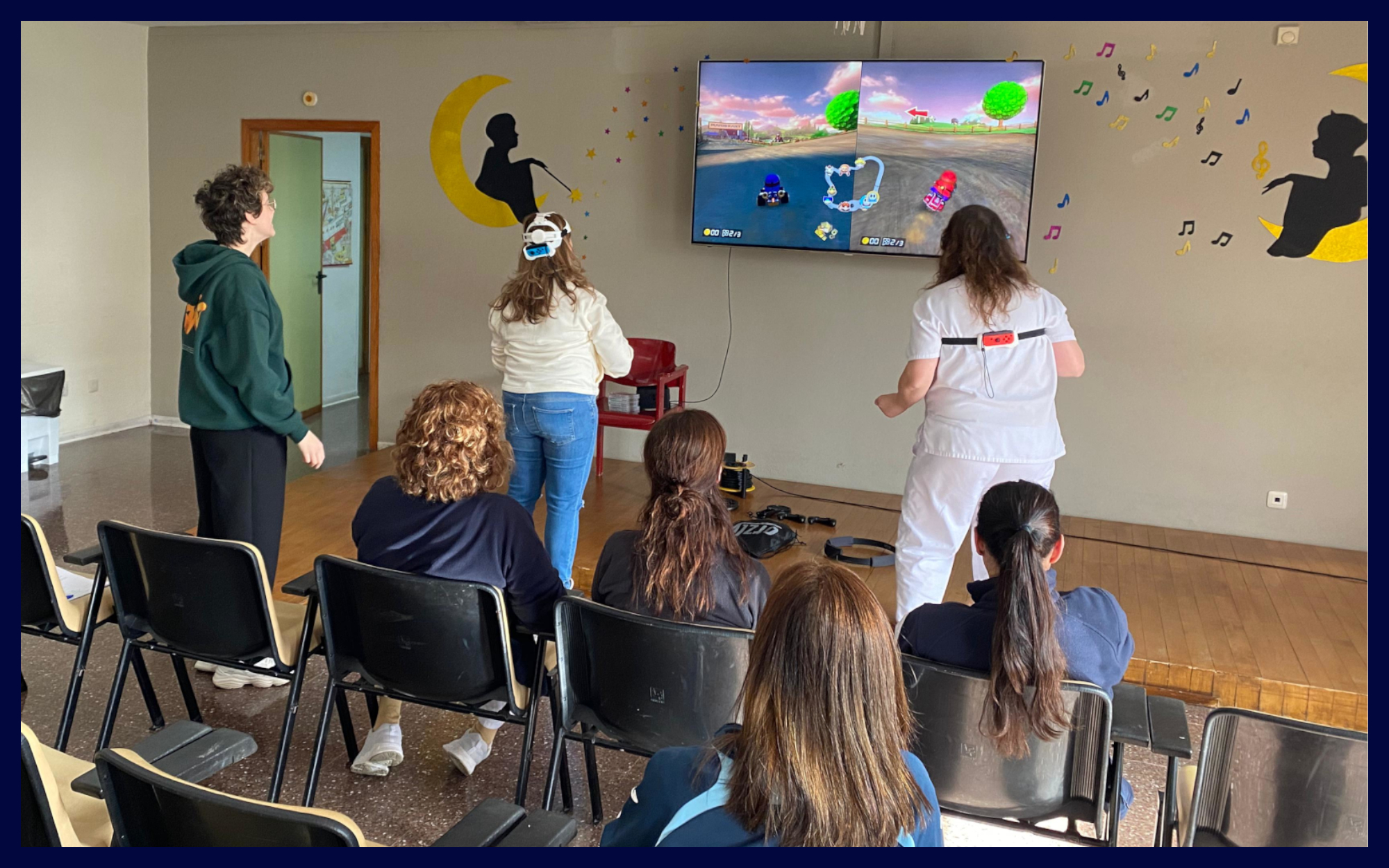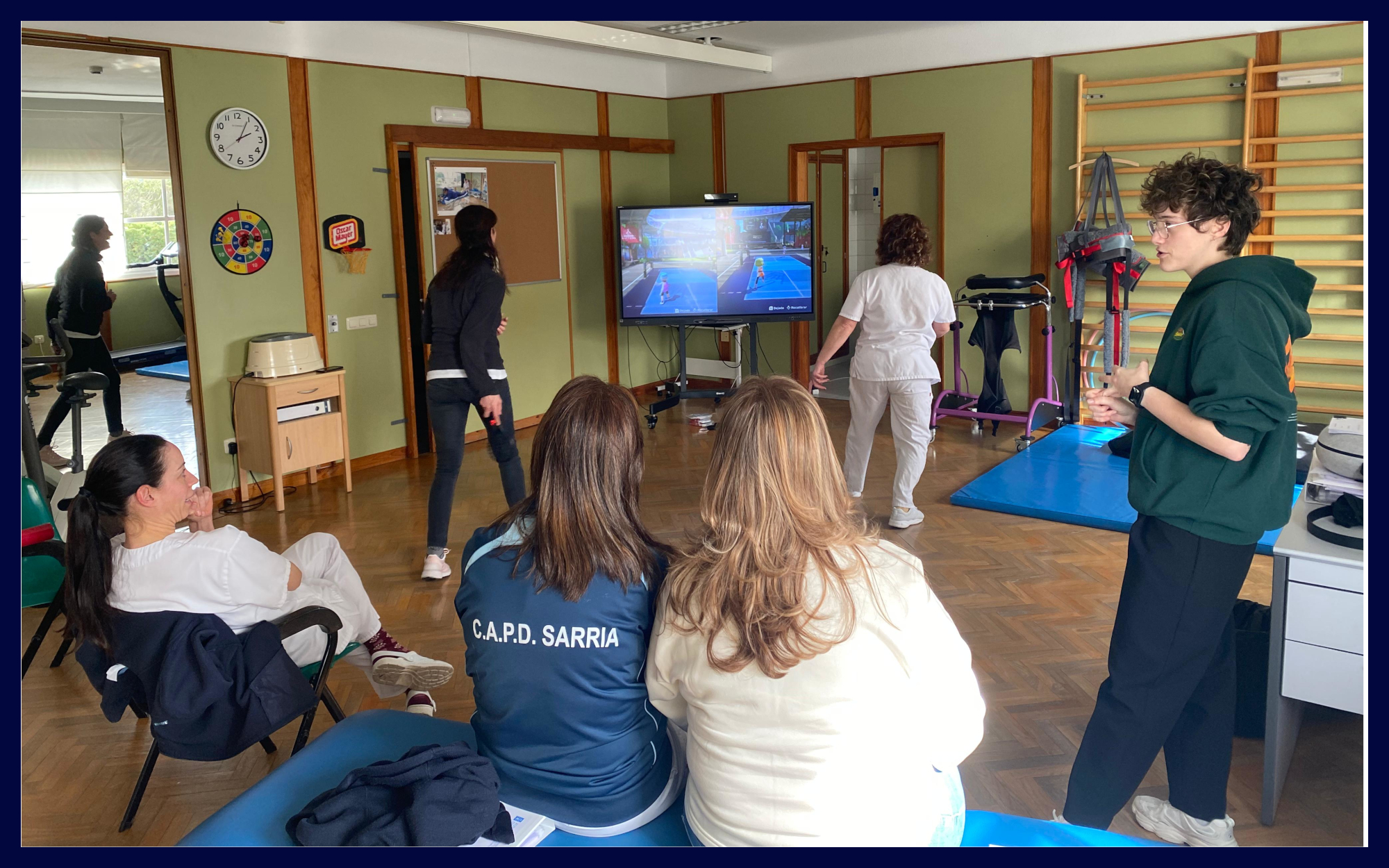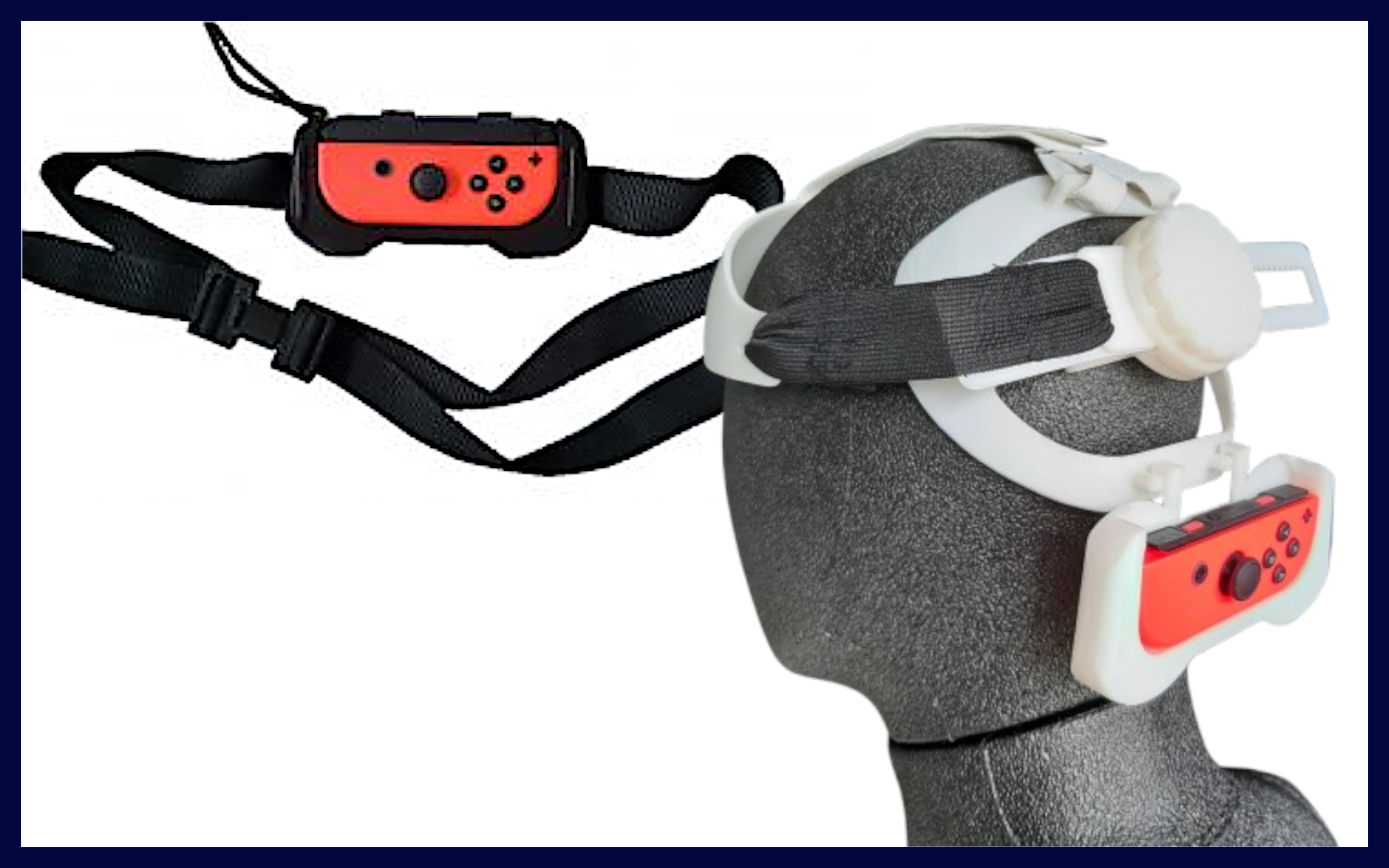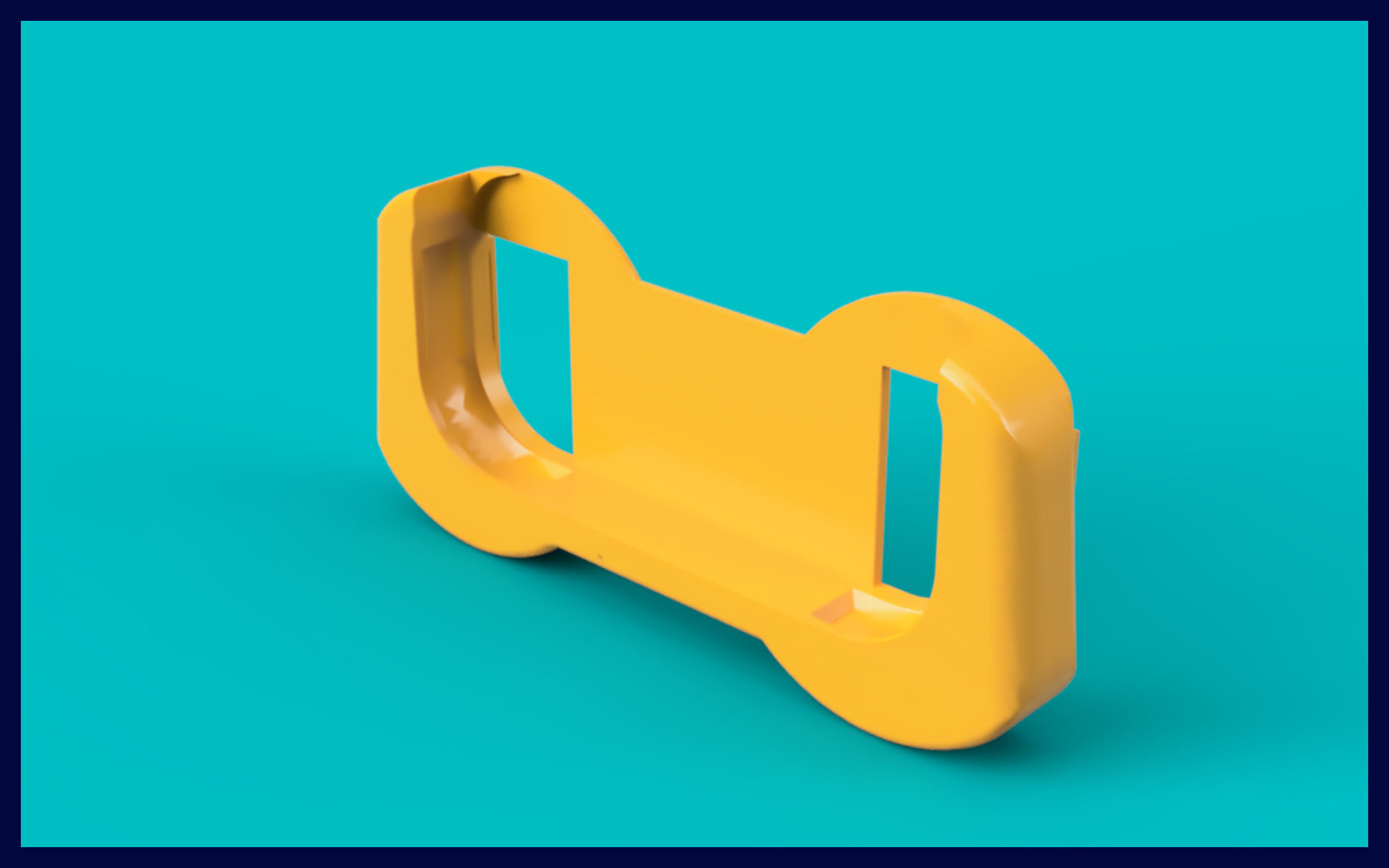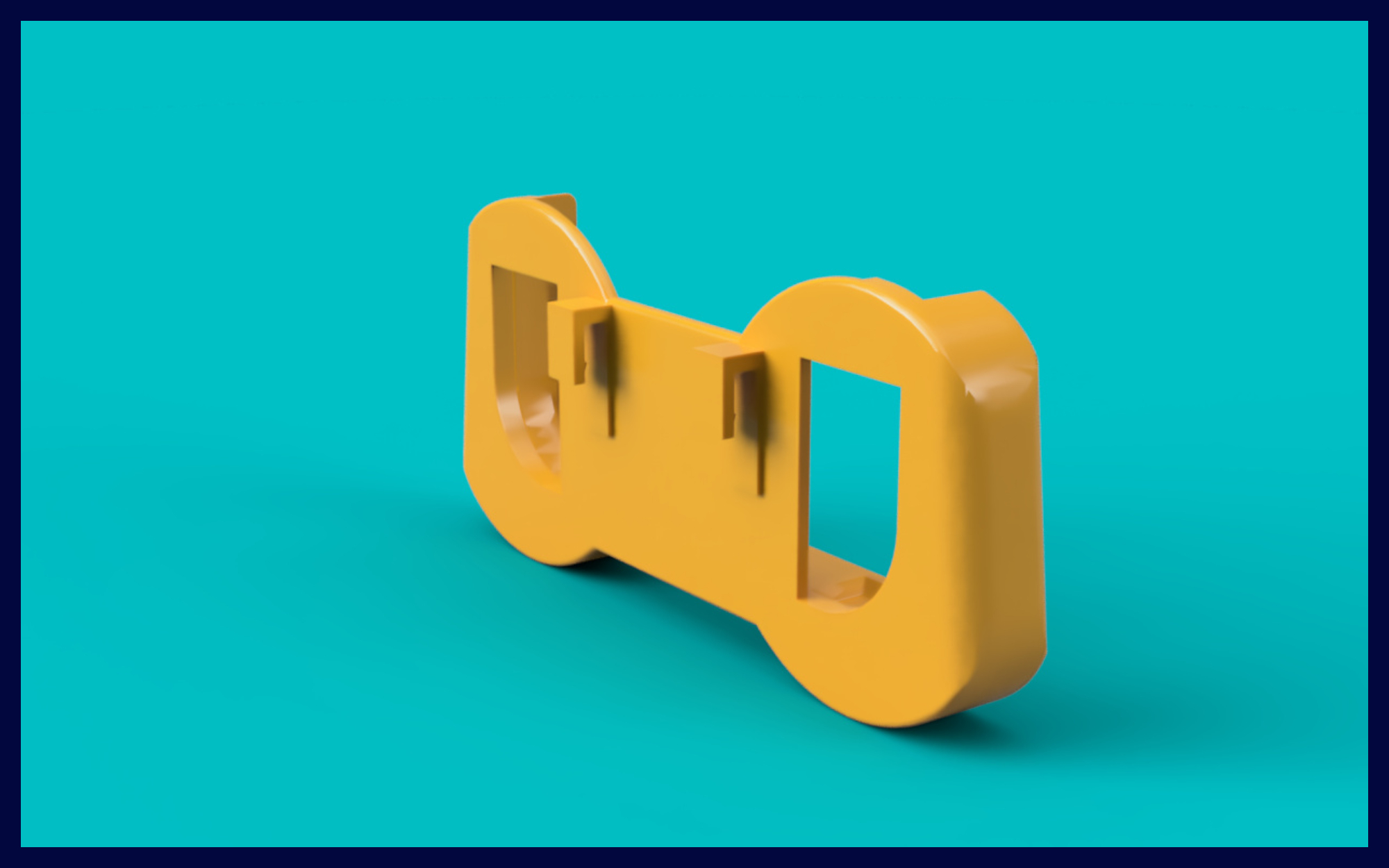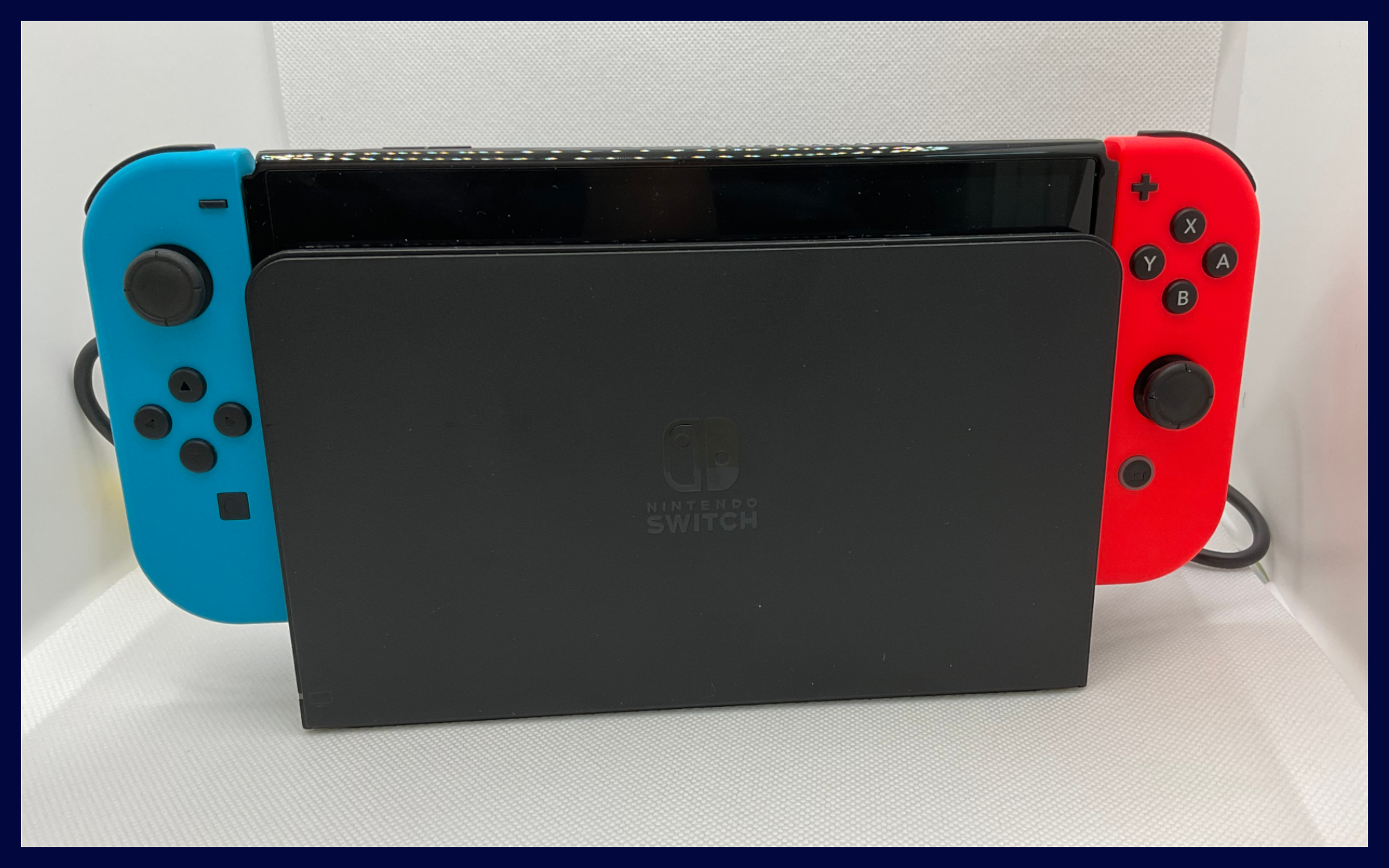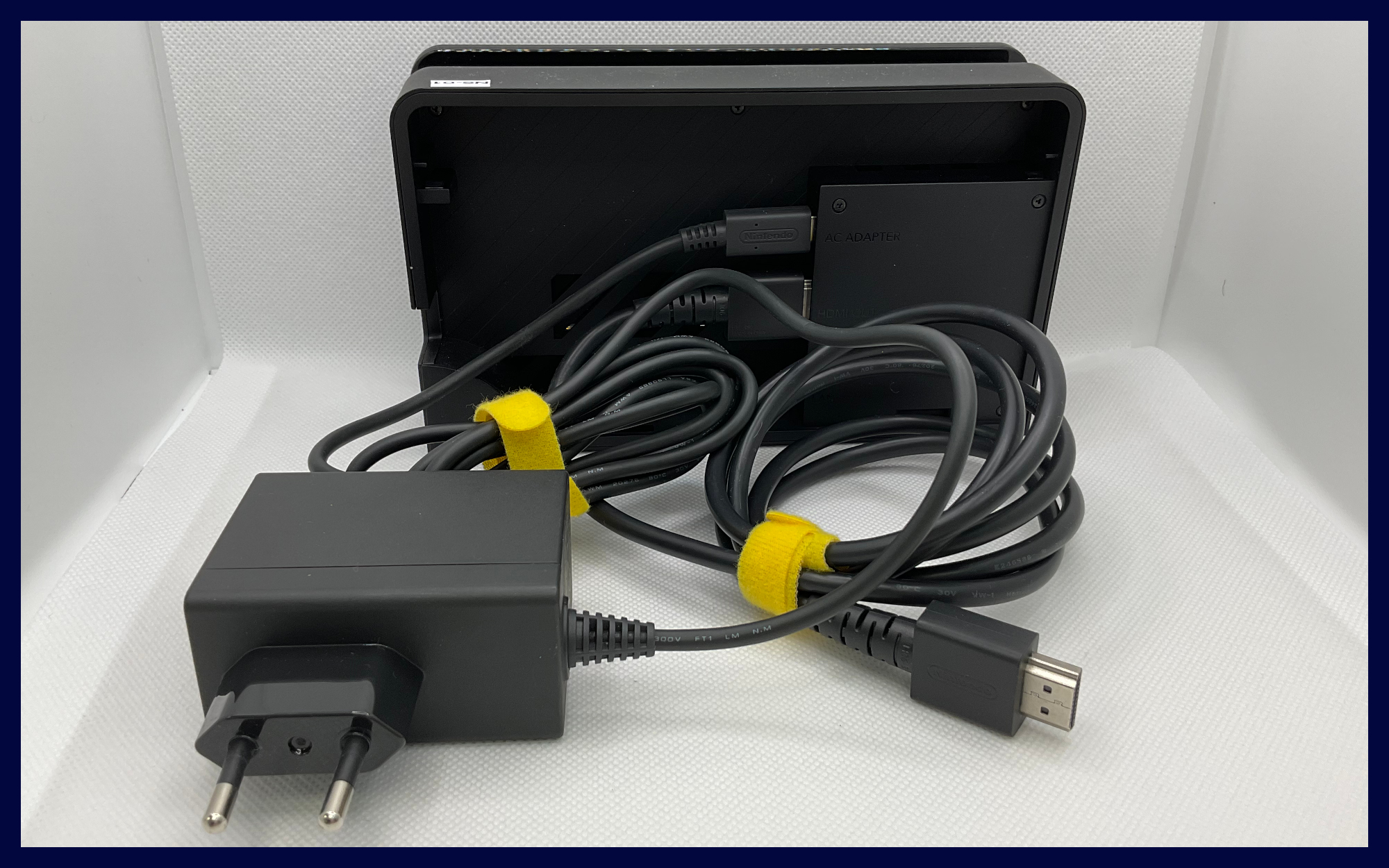Fisioconsolas
Categorization and provision of video games of therapeutic interest and design of adaptations that enable accessible use in CAPD centers.
General description of the project
This project focuses on the provision and configuration of video game consoles for therapeutic use in CAPD centers, selecting adapted games that promote the development of cognitive, motor, and social skills. The console integrated into the project is the Nintendo Switch, taking advantage of specific accessibility features such as its controllers and motion detection camera to create interactive experiences adapted to users’ needs.
The selection of games was based on the recommendations of professionals and the preferences of users, prioritizing those that promote coordination, planning, decision-making, and physical activity. In addition, the consoles were configured with accessibility options to facilitate their use, including simplified control settings, explanatory pictograms, and adapted game modes.
The use of 3D printing made it possible to create adaptations for game controllers, improving accessibility for people with motor difficulties. An example of this is the development of a customized controller for the Nintendo Switch, which allows games to be controlled through trunk or head movements.
The inclusion of motion sensor–based games enables users to participate actively, even those with motor limitations, ensuring an accessible and motivating experience during therapeutic and recreational sessions.
Technical breakdown of the project
Two main types of adaptations were developed within this project. First, modifications were made within the Nintendo Switch’s own software, activating specific settings to optimize gameplay and improve accessibility for different users. Second, physical adaptations were created using 3D printing, designed to make console controllers easier, more ergonomic, and more inclusive to use.
- In the game Mario Kart 8 Deluxe, several adaptations were made to improve accessibility and facilitate user participation. Items were removed from the game, smart steering was activated to prevent going off-track, and automatic acceleration was enabled. Additionally, an evaluation of the different circuits was carried out, producing a list of the most and least accessible tracks based on their difficulty and gameplay features.
- In the field of 3D printing, several customized adaptations were developed: one to control the Nintendo Switch controller from a wheelchair, securing it around the body, and another consisting of an adapted helmet that allows the controller to be attached and operated using head movements. New solutions are currently being designed to support balance training and improvement, continuing the project’s work in innovation and accessibility.
Team
- Dr. Paula María Castro Castro, Computer Engineer, GTEC Research Group
- Dr. Francisco Javier Vázquez Araújo, Computer Engineer, GTEC Research Group
- Dr. Adriana Dapena Janeiro, Computer Engineer, GTEC Research Group
- Paula de Santos Dorrego, Occupational Therapist, TALIONIS Research Group
- Raúl Fraiz Gómez, Occupational Therapist
- Manuel Lagos Rodríguez, Computer Engineer, TALIONIS Research Group
- Jorge Rivadulla Brey, Computer Engineer, TALIONIS Research Group
- Iago Fernández Garrido, Computer Engineer, TALIONIS Research Group
Academic and dissemination activities
The tool has been presented and demonstrated in various outreach and scientific events, including:
Día da Ciencia na Rúa
Cullerciencia
Open Science Cambre
OSHWDEM
Maker Faire Galicia
These adaptations were also showcased at the Primer Congreso Internacional del Consejo General de Colegios de Terapeutas Ocupacionales, held in Madrid from May 22 to 24, 2025.



